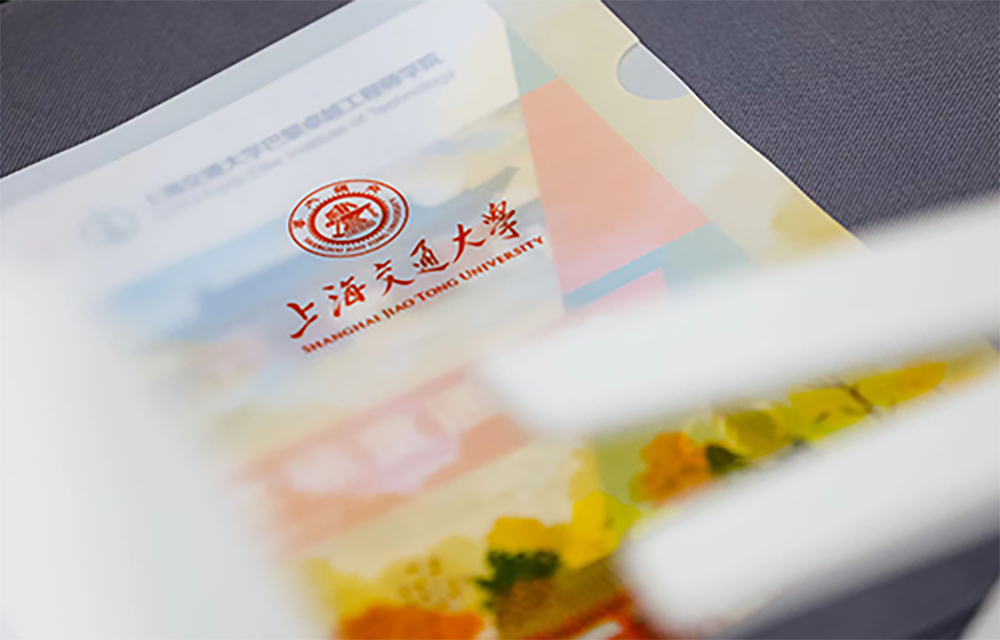
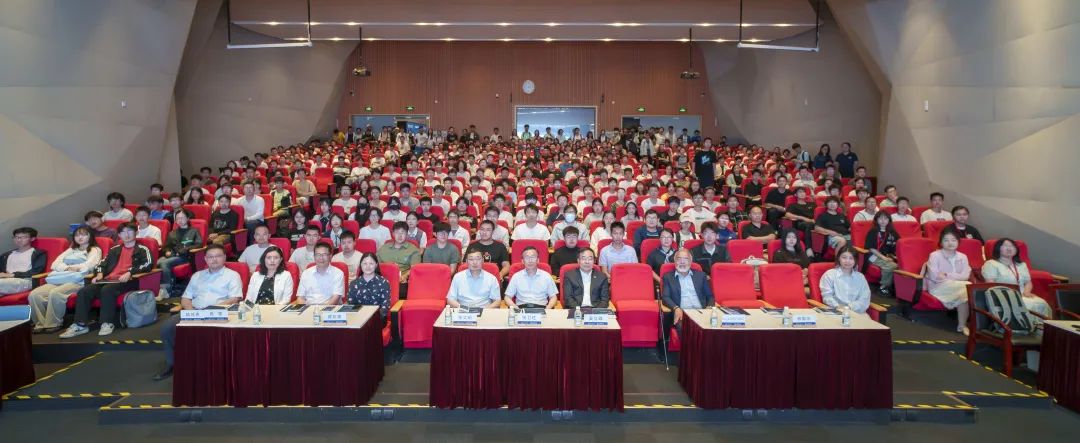
On the afternoon of May 21, the Li Zhengdao Library lecture hall was packed and filled with applause. Professor Zhang Weihong, a member of the Chinese Academy of Sciences and former Vice President of Northwestern Polytechnical University, was invited to the 253rd Master’s Lecture at Shanghai Jiao Tong University (SJTU) and the 6th Sino-French Excellence Lecture. He delivered a talk titled "Personal Research Insights."
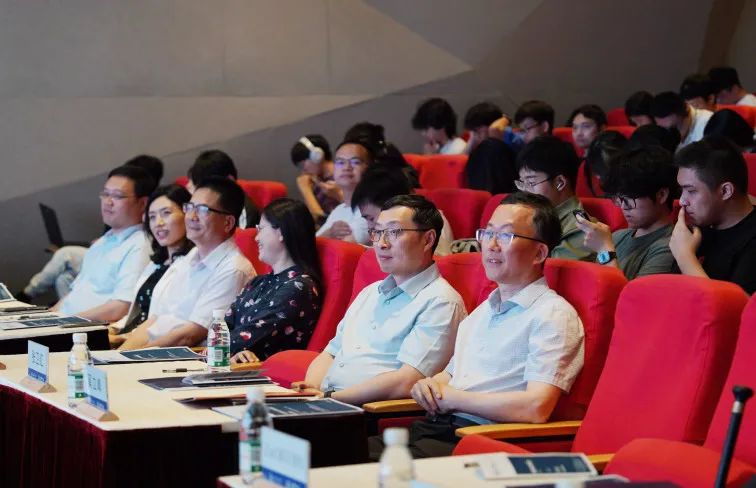
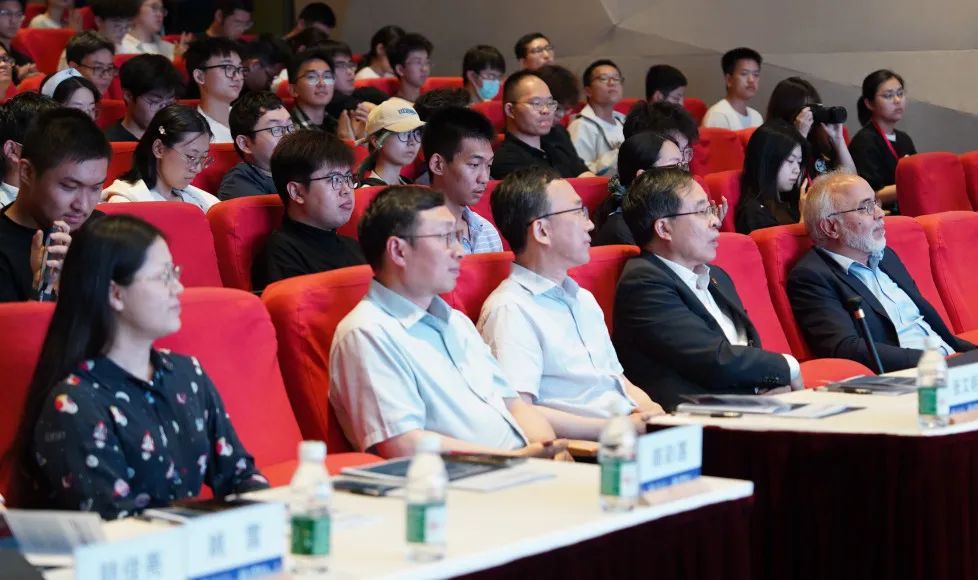
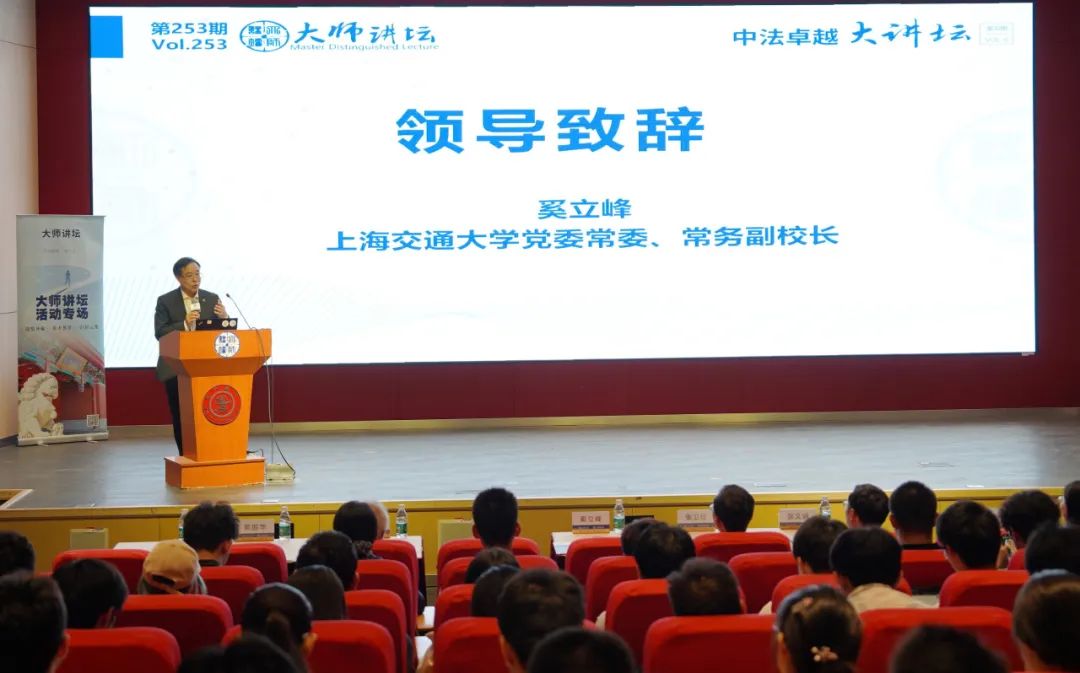
Xi Lifeng welcomed and thanked Professor Zhang in his opening remarks. He noted Zhang's long-term work in aerospace structural optimization and advanced manufacturing technology, which has significantly boosted the development of high-quality and efficient aerospace processing technologies. Professor Zied Moumni, the French Dean of the SPEIT, who has a close international collaboration with Zhang, was the forum's invitee. The event reflects the deepening of China-foreign cooperation. Xi introduced the aims and achievements of SJTU's Distinguished Lecture, hoping the audience would appreciate the power of "national heavy equipment" and innovation, and understand the research spirit of domestic and international academic masters.
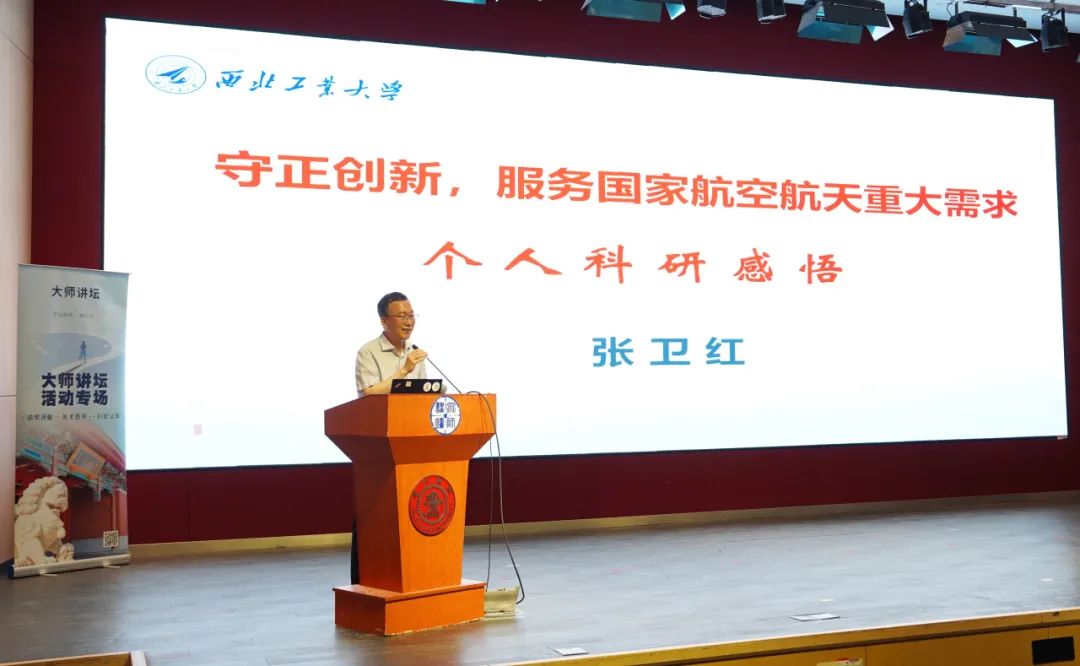
In his report, Professor Zhang shared his research insights on the theme "Staying True to Innovation and Serving National Aerospace Needs" with simple language, rich content, and deep emotion. Drawing from his academic and research journey, he elaborated on choosing research directions, establishing research methodology, methods for transforming engineering problems, the internal logic between basic research and national needs, and the significance of international research collaboration.
Zhang reviewed his educational profile: admitted to Northwestern Polytechnical University in 1980 to study aircraft manufacturing, and in 1985, under a national sponsorship program, he studied in Belgium and France under several renowned experts in mechanics and optimization design, mastering computational mechanics and structural design theories. This experience made him realize that "the organic combination of mathematics and physics with science and engineering is key to solving complex engineering problems" and laid a solid foundation for his future research in aerospace structural design optimization.
Zhang analyzed key elements and pointed out the triple logic of research directions—being grounded in national strategic needs, combining with industry characteristics, and considering the university's discipline positioning and strengths. Only by integrating these three aspects can individual research development resonate with national technological progress. He also emphasized that academic research in universities should focus on extracting scientific problems from engineering practice, achieving theoretical breakthroughs, and validating research results through engineering applications, truly realizing "from engineering, to engineering."
Zhang introduced his team's research in the aerospace field over the years. Using the development of optimization design as a starting point and cases like structural rib layout optimization, he explained topology optimization methods for exploring structural design potential. He also introduced his team's research on integrated configuration design theories and methods for mechanical structural systems. Regarding metal structures and composite components, he discussed thin-walled component cutting process optimization and modeling, analysis, and collaborative optimization of curing forming for large composite thin-walled components.
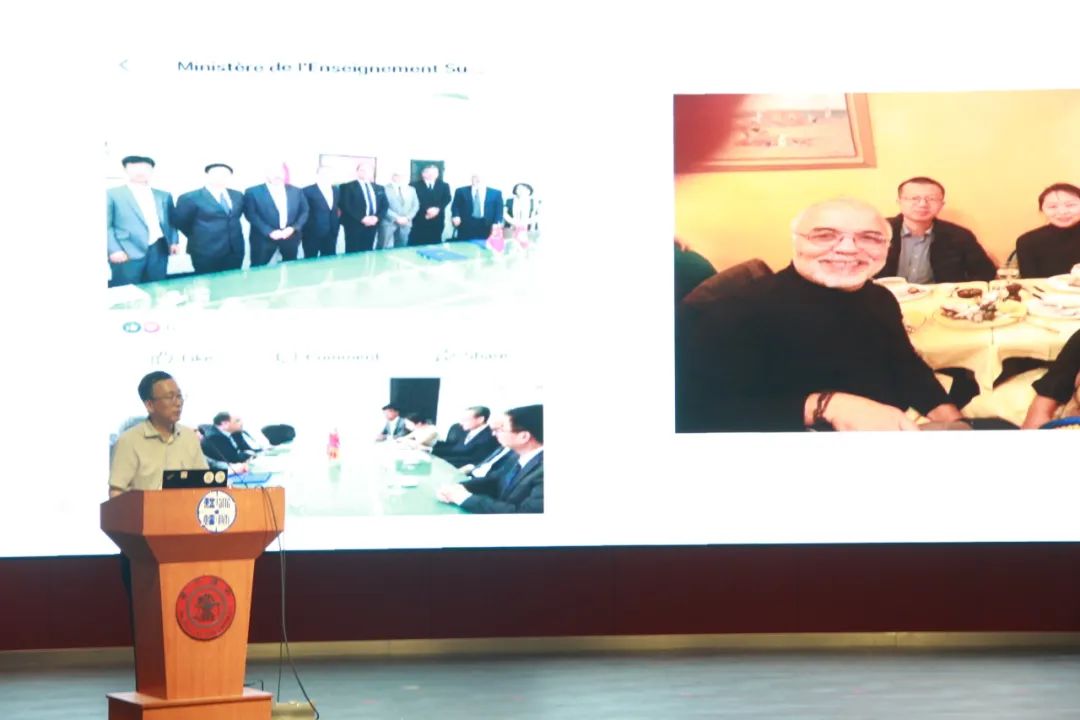
At the end of the lecture, Zhang used precious old photos and heartfelt words to review his decades-long friendship and research collaboration with Professor Moumni, which transcended borders. They first met in France, and after returning to China, Zhang invited Moumni to Northwestern Polytechnical University. He stated that Professor Moumni is not only an important collaborator in his research career but also a crucial "pivot" for the university's internationalization and international research collaboration. During his time at the university, Moumni supervised several doctoral students and made outstanding contributions to engineering materials and international exchanges, earning the "Chinese Government Friendship Award." Through Professor Moumni, the university connected with more international scholars and built communication bridges between many universities and research institutions in China, France, and Europe.
Professor Zhang emphasized that international cooperation is not just technical collaboration but also a process of cultural understanding and people-to-people bonds. He quoted President Xi Jinping's saying, "The friendship between nations lies in the affinity between peoples, and the affinity between peoples lies in the communication of hearts," stating that scientific and technological exchanges are vital for building a community with a shared future for mankind. He called on young students to enhance cross-cultural communication skills and become bridges and messengers connecting different civilizations and perspectives in their research careers, promoting mutual understanding between China and foreign countries.
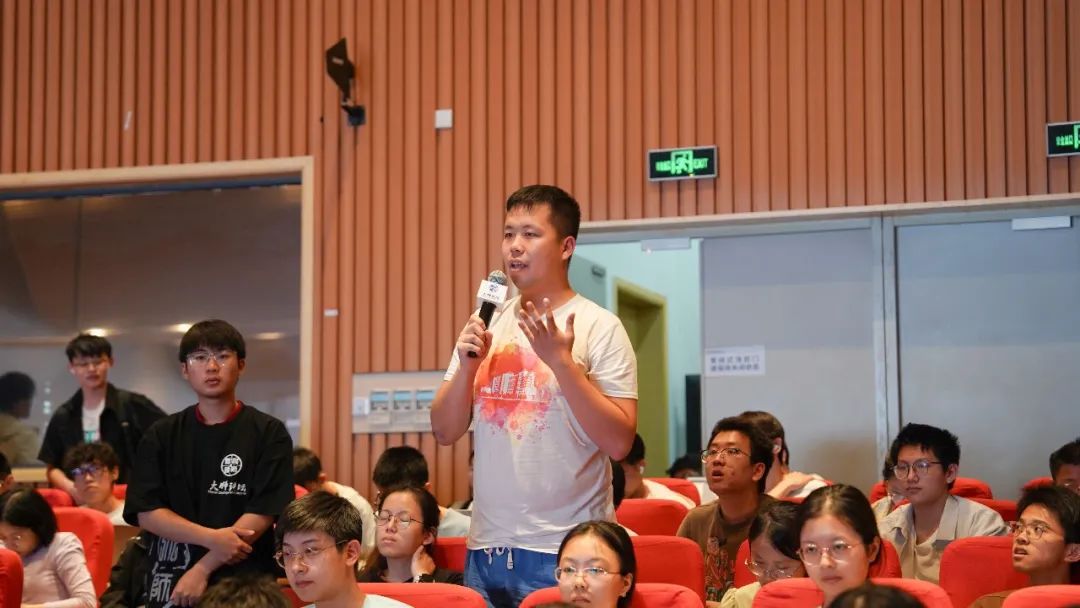
During the interactive session, audience members actively asked questions on topics such as comparing solid and liquid rocket engines and the development of low-altitude manufacturing industries represented by civilian drones. Professor Zhang patiently answered each question, responding to everyone's concerns in an accessible way, creating a lively atmosphere.
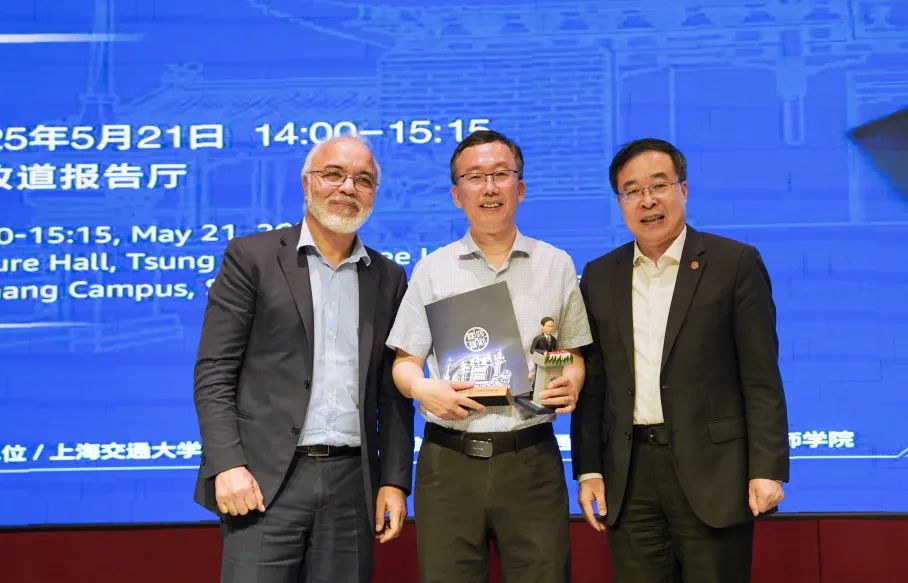
Xi Lifeng presented Professor Zhang with a certificate of honor and a souvenir, while Professor Moumni also gifted him a souvenir from the SPEIT, expressing the high respect and sincere gratitude of SJTU faculty and students.
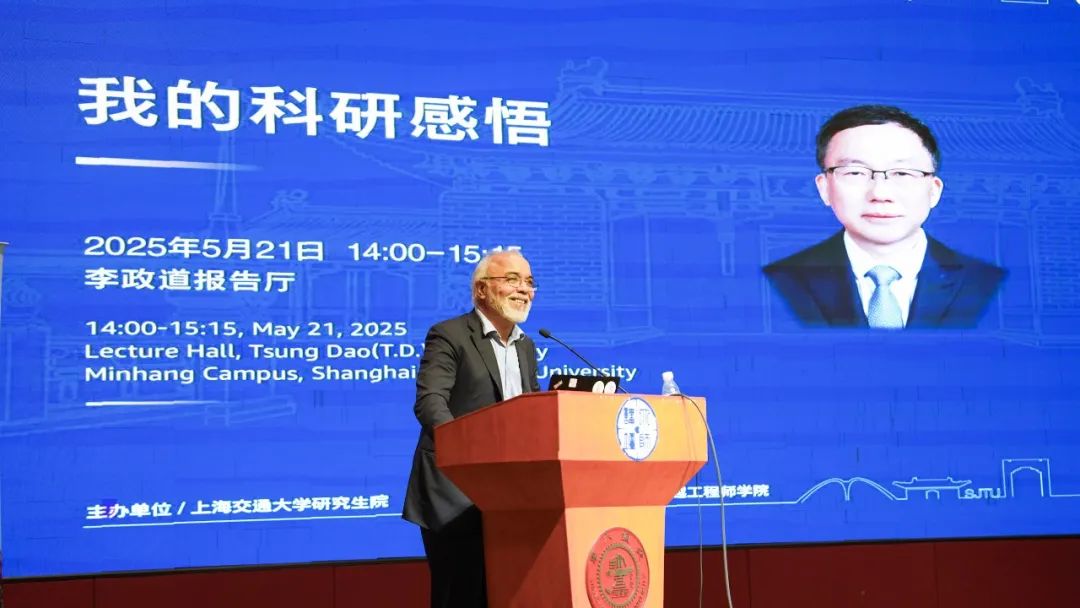
At the end of the event, Professor Moumni shared how meeting Professor Zhang had significantly impacted his life and reiterated his thanks to Professor Zhang. He urged students not to neglect fundamental research and technological breakthroughs in engineering materials amidst the AI boom, emphasizing that while AI is important, it ultimately relies on real-world materials.
This Sino-French Excellence Lecture, jointly organized by Shanghai Jiao Tong University and the SPEIT, is another active exploration of advancing international engineering education and China-France cultural exchange. In the future, the university will continue to invite global academic masters and distinguished figures to inspire young students.




